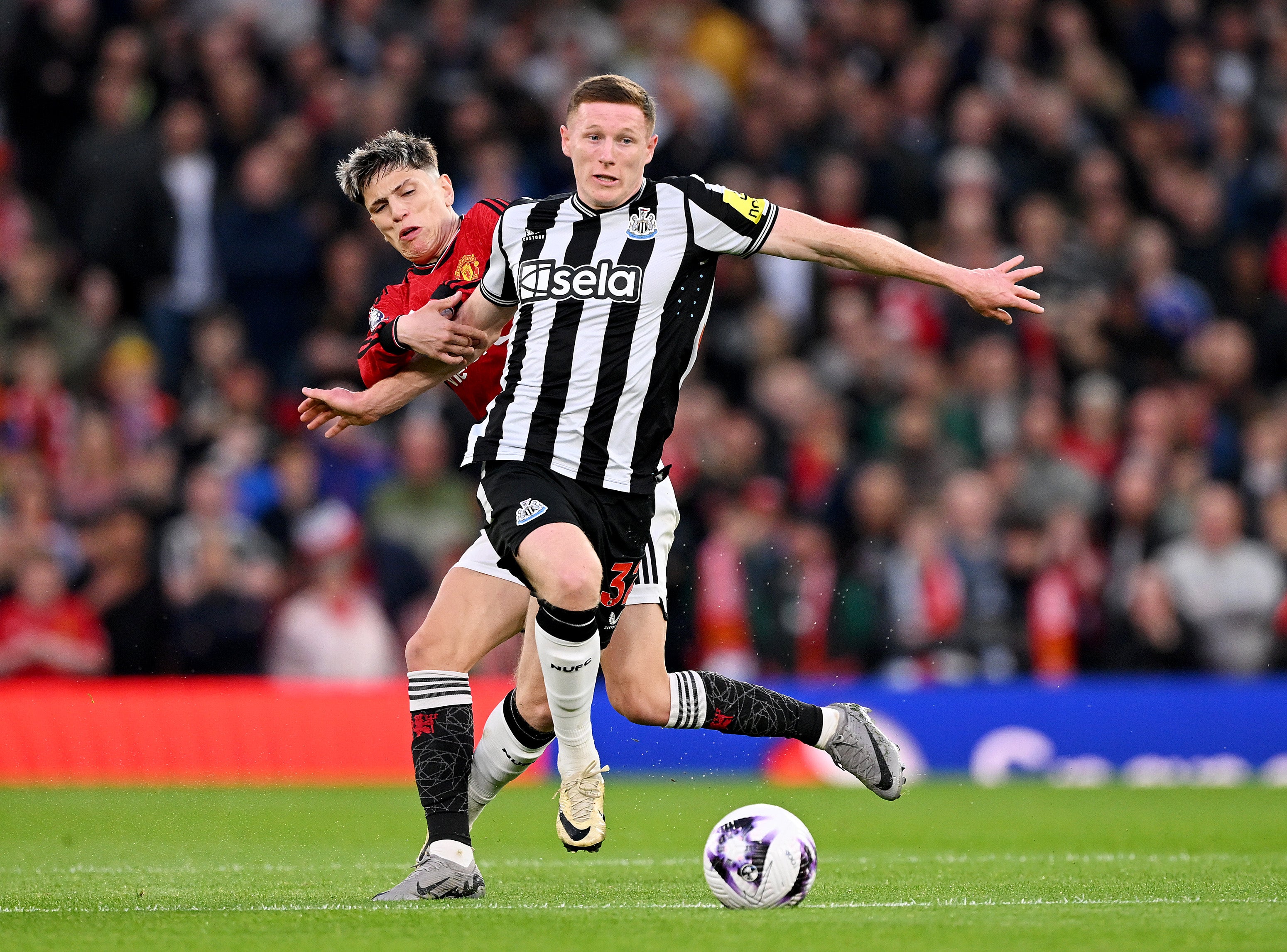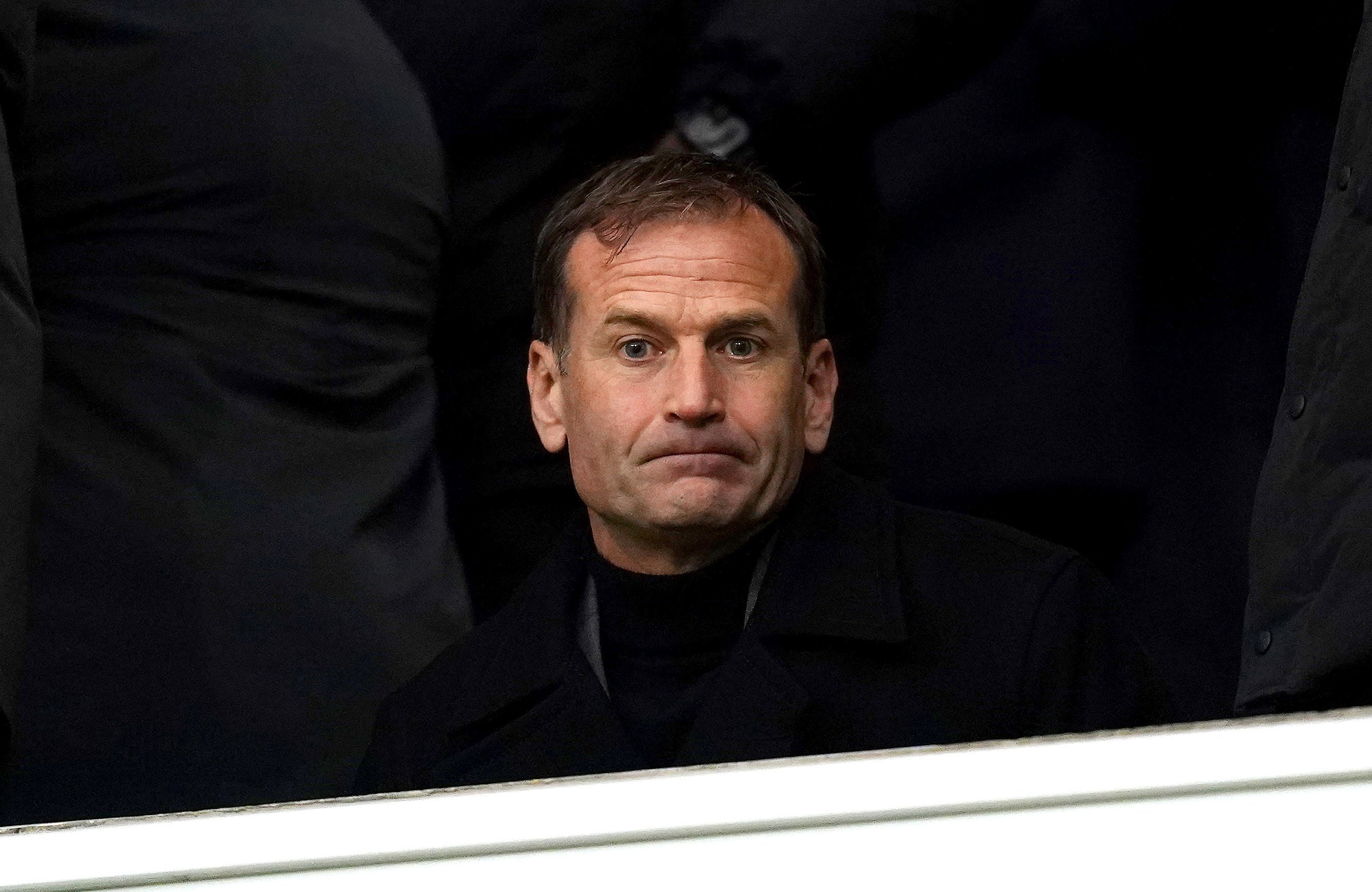There are types of transfer. There are free transfers and record-breaking transfers. There are statement signings and desperation signings. Now there is a new addition to the genre: PSR transfers (for the uninitiated, PSR stands for Profit and Sustainability Rules). The flurry at the end of June reflected a new cut-off point in the calendar: the end of the footballing financial year.
So 30 June became a different kind of deadline day: the point by which the imperilled had to sell, to avoid the threat of deductions. It can feel like a strange result of Financial Fair Play, one of its laws of unintended consequences (the extra benefit of selling academy products, who qualify as pure profit in the accounts, being another).
The requirement to limit losses to £105m over a three-year period was underlined last season: everyone, it seemed, is scarred by the points penalties Everton and Nottingham Forest incurred for their own breaches. The failure of Forest’s Brennan Johnson argument – that they had received an offer for the Welsh winger by the end of June last year, rejected it because it did not meet their valuation and sold him for a higher sum two months later – seemed to serve as a warning to anyone else inclined to adopt the same approach.
And it created a cabal, a cartel, who all had an incentive to trade and give the impression they formed an informal agreement to buy from one another. Everton, Nottingham Forest, Newcastle, Leicester, Aston Villa and Chelsea conducted a remarkable amount of business with each other, and discussed even more (Dominic Calvert-Lewin did not, in the end, go to St James’ Park, for instance).
And if Chelsea have long rejected suggestions they were on course to fail Financial Fair Play, what can be said is that some of the ‘PSR six’ were close to the line – or, in at least one case, way over it and in a race against time to get back on the other side.
And Todd Boehly’s busy traders have acquired a reputation as specialists in locating loopholes. A few months after selling two hotels to themselves, Chelsea then bought Dewsbury-Hall, which sounds like a boutique wedding venue but, on closer inspection, turned out to be a midfielder from Leicester.

Amid a flurry of activity, there were some eye-catching prices. Chelsea paid £19m for Villa’s Omari Kellyman who has played 35 minutes in the Premier League. Forest forked out £35m for Newcastle’s Elliot Anderson, whose career has brought no Premier League goals and three assists and who, when everyone is available, may have been about Eddie Howe’s seventh-choice midfielder. Lewis Dobbin and Tim Iroegbunam contrived to have suspiciously similar values when they swapped Everton for Villa.
So there are several elements worth mentioning. Clubs can profit from sales in one year’s accounts and amortise the cost of purchases over several years: in short, selling 20 homegrown players for £20m and buying 20 other footballers for £20m would appear as a huge profit on the balance sheet in one year. With new spending caps rules potentially coming in for 2025-26, this may not be the start of a permanent trend. And the Premier League will scrutinise deals to see if they are at fair-market value; the difficulty being assessing what that actually is, especially when many of those transferred are younger players with apparent potential that, in theory, could make them far more valuable in the future and thus harder to assess now. Pricing footballers is not as simple as pricing houses.

And yet there may be an alternative measure of the merit of such players when the same clubs developed a sudden interest in each other’s fringe figures: how many of them start often next season? Ian Maatsen should for Villa, as a Champions League finalist, when it was long apparent Unai Emery wanted another left-back. Presumably Kiernan Dewsbury-Hall for Chelsea, under his former manager Enzo Maresca. Anderson’s status as one of Forest’s biggest-ever signings logically would mean he is slated for a key role, though he has only ever begun 13 top-flight games.
But perhaps not some of the others. Odysseas Vlachodimos will be either Newcastle’s second or third-choice goalkeeper. Dobbin, who has one Premier League start to his name, looks way behind Moussa Diaby, Leon Bailey, Morgan Rogers, Jacob Ramsey and John McGinn for the attacking midfield berths at Villa.
Everton can at least argue they see Iroegbunam, who they have liked for a while, as a long-term replacement for 34-year-old Idrissa Gueye, and feel his and Dobbin’s fees are comparable with the amount they received for Tom Cannon last year. Kellyman joins Chelsea’s battalion of midfielders: if he has a similar anonymity at Stamford Bridge to past equivalents like Cesare Casadei and Andrey Santos, Chelsea can argue that does not make him a PSR dodge. Their squad is filled with players they thought were the next big thing.
For some, there will be a smell of suspicion. Moves between the same six clubs belong in a very different category to purchases by those with no FFP worries, like Tottenham buying Archie Gray or Brighton getting Yankuba Minteh. The merits of those offers remain to be seen, though Gray has huge potential, but Spurs and Brighton are in among the best health in regards to PSR. Manchester United are not but their bid for Jarrad Branthwaite could look an opportunistic attempt to capitalise on Everton’s plight. Newcastle’s proposal to Liverpool involving Anthony Gordon indicated their position had become perilous.

There may be a curiosity if Newcastle instead pass PSR by selling a sporting director, in Dan Ashworth; or if Leicester do by parting company with a manager, in Maresca.
Yet if Financial Fair Play was designed to restrict clubs’ spending, if the points deductions have gone or could go to those who have overspent or bought badly, football’s law of unintended consequences may have brought a flurry of deals for a new type of buy, some of whom may swap one bench for another.
And after the mutually convenient outlay, some of them may revert to bit-part roles, largely unused by the clubs who acquired them in a hurry as their managers wonder what to do with their loophole signings.

